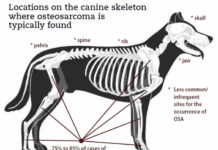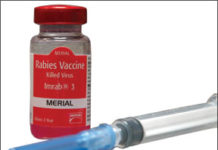Building Your Dogs Immune Health
Canine immune system disorders range from very common (such as seasonal allergies), to extremely rare disorders that afflict certain breeds (and even, in some cases, certain branches of individual breeds). Someday, the Canine Genome Project may well bring life-saving illumination to the process by which specific genes trigger specific diseases. At present, however, the inheritance of effective immunity continues to be a mysterious, if not star-crossed, commodity. Some dogs, like some people, are unlucky. However, the immunity that any individual dog is born with can often be improved with enlightened canine husbandry practices, traditional medical care, and complementary care from holistic health modalities.
Commercial Dog Food For Allergies
Owners who don't feel capable of or willing to carry out a rigorous trial may prefer to try a commercial dog food that has been processed in such a way as to render the proteins hypoallergenic, or one designed specifically for use in an elimination diet. Chances are good that your veterinarian carries at least one of these types of food. Some are limited-ingredient diets, available over the counter; others are prescription diets. All cost around 30 percent more than even the best nonprescription dog foods.
Identifying the Healthiest Dog Breeds (and a Few Myths Busted)
Along with size and temperament, health is one of the most important considerations when you are thinking about bringing a dog into the family.
Bloat: The Mother of All Canine Emergencies
restlessness
Osteosarcoma: Causes, Diagnosis, and Treatment
Osteosarcoma (OSA) has been found in every vertebrate class and has even been identified in dinosaur fossils, but it appears to be more prevalent...
More States Change Rabies Vaccine Requirement
Arkansas canines and their humans have very good reason to celebrate the start of the new decade. That state’s new rule allowing for a three-year rabies vaccine became effective January 1, 2010. This means dogs in Arkansas will need to be vaccinated only every three years (after their initial first-year booster) instead of annually, as was previously required.
Do Dog Supplements Really Work?
When a specific dietary supplement is given to an individual (canine or human) who previously lacked the nutrients or chemicals offered by the supplement, or whose body required a higher dose than was previously available, miraculous improvements in health, appearance, and attitude can indeed take place. But most people have no idea whether they are lacking something before they add it to their own or their dog’s diet!
Are Ticks Active in the Winter?
Even the most obsessive dog owners may let their flea-and-tick guard down when the winter winds kick in to save some time and money....
Maintaining and Protecting Your Dog’s Paws During Winter
The sky was a brilliant blue, with glimmers of sparkling snow flashing across the path ahead as a light breeze blew it into the...
Veterinary and Human Medical Centers Collaborate
The Virginia-Maryland Regional College of Veterinary Medicine and Wake Forest University’s Institute for Regenerative Medicine in Winston-Salem, North Carolina, signed an agreement in January to form the Virginia Tech/Wake Forest Center for Veterinary Regenerative Medicine (CVRM). The goal is to facilitate the use of cutting-edge, regenerative (stem cell) treatments for pets and people. Clinical trials performed at the center will provide valuable information concerning the effects of stem-cell therapy.
Probiotics and Dogs
Curly, a five-year-old Standard Poodle, eats the best food his human can afford. Raw chicken, rabbit, and venison are his favorites. Tina, his two-legged companion, switches the meats every few days, mixing the protein with some sweet potato, carrots, an occasional stalk of broccoli, and always a good fish oil supplement. Plus, to be sure that Curly is getting full nutritional benefit from every delicious bite, Tina always adds a sprinkling of a probiotic and digestive enzyme supplement as a final touch. Everything Curly eats is the best of the best: human-grade ingredients, no preservatives, no by-products. But somehow, despite all of the good lovin' and great food, Curly is a bit thin, won't put on weight, and his stool is sometimes dry making it hard for the poor guy to poop during his daily walks. Tina knows that something is amiss and she is worried. She was told that maybe the probiotics weren't active, so she tried several different brands. But nothing has improved. So what gives; is it that the probiotics don't work? Adding supplemental Lactobacillus acidophilus, Bifidobacterium bifidum, Lactobacillus bulgaricus, or other probiotic organisms to your dog's diet is almost always a good idea. This will support the resident microflora that are always present in Curly's gut, enhancing digestion and absorption of nutrients, supporting detoxification and elimination processes, and helping to boost his immune system.
Parvovirus in Dogs: What It Is and How to Prevent It
Because Canine Parvovirus can be found anywhere infected dogs have visited, the cornerstone to protecting your dog from the parvovirus is vaccination. Since the development of the parvo vaccine, the incidence of infection has been greatly reduced. A single modified live vaccine can confer protection within three to five days. Although parvoviruses continue to evolve, vaccination appears to confer reliable protection against all known strains.


















